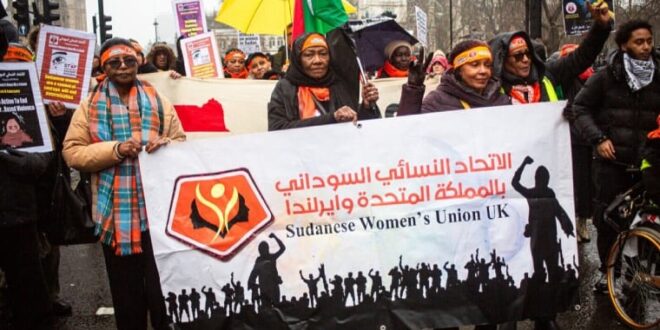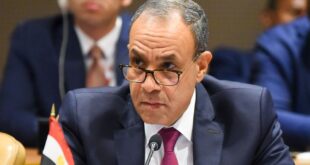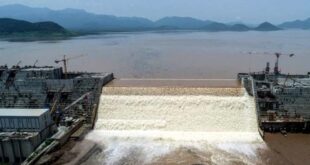By Camilla Royle
The British state is trying to pose as a peace-maker in Sudan after nearly two
years of war have torn the country apart.
The Labour government announced on Thursday that it will hold a conference in London on 15 April with foreign ministers from nearly 20 states. That will mark the second anniversary of the civil war between the Sudanese Armed Forces (SAF) and the Rapid Support Forces (RSF).
The two warring factions, which are backed by imperialist and regional powers, drowned in blood the revolution that began in 2018.
Britain has invited some of the powers arming the generals, including Saudi Arabia and the United Arab Emirates, to a “peace conference”.
The move is another act of hypocrisy by the British state. Britain and the United States helped thwart the popular forces driving the revolution, and pushed for deals being done with the generals.
Scenes of horror stalk the streets of Khartoum in the wake of the SAF capturing the country’s capital on Thursday of last week.
The SAF, led by General Abdel Fattah al-Burhan, formally declared that it had taken back the city last week.
But this wasn’t a military victory over the rival RSF, which had agreed to withdraw its forces under SAF observation.
The SAF also controls most of Omdurman, Khartoum’s twin city on the other side of the River Nile, and the location of two military bases.
But the war is not over. The RSF continues to control territory in the south and west of the country, including almost all of the Darfur region. Even as defeat in the capital looked inevitable, the RSF still said, “We will deliver crushing defeats to the enemy on all fronts.”
Its leader Mohamed Hamdan Dagalo—known as Hemedti—referred to the RSF’s retreat as a “tactical repositioning”.
The RSF has formed an alliance with the Sudan People’s Liberation Movement-North, led by Abdelaziz al-Hilu, which controls much of the southern region of South Kordofan.
In February the RSF signed a charter at a meeting in Kenya to formally declare a “Government of Peace and Unity”. It was backed by al-Hilu’s organisation and several other armed groups.
The declaration has provoked fears that Sudan’s divisions could become entrenched, leaving the country permanently divided.
There are also renewed military clashes in South Sudan, which broke away from Sudan to become independent in 2011. The president Salva Kiir has arrested his rival and vice president Riek Machar.
The war in Sudan has led to an influx of weapons and disrupted oil exports.
The two conflicts could also become enmeshed. Sudan’s RSF is linked to the South Sudanese government, which is led by a wing of the Sudan People’s Liberation Movement. And al-Burhan may back rebels if it helps him regain the south of Sudan.
Sudan’s civil war has been described as the biggest humanitarian crisis ever recorded. It has displaced more than 12 million people. Women have been systematically raped and tortured and millions of children are facing acute malnutrition.
People are desperate for an end to the fighting. It’s little wonder that some residents of Khartoum have welcomed the return of the army.
The RSF has undoubtedly committed atrocities against ordinary people. But so has the SAF. When it took over the city of Wad Madani earlier this year, SAF soldiers executed agricultural workers from the south and west of the country.
Although they have been fighting against each other for the past two years, the RSF was established and armed by Sudan’s former dictator Omar el-Bashir. And was funded by the European Union as part of its efforts to stop immigration into Europe. It was used by the army to commit war crimes in Darfur and to fight in Yemen.
When the state wanted to crush the revolution that began in 2018, the RSF played a key role in support of the army. It massacred civilians taking part in mass sit-in protests in 2019.
In 2021, the SAF led by al-Burhan and the RSF commanded by Hemedti took over in a military coup. Huge demonstrations and strikes, mobilised by thousands of neighbourhood-based resistance committees, challenged them.
The two armed factions went to war with one another in April 2023.
The Sudanese army portrays itself as representing the interests of the whole nation. But the two militias in the war represent a division within the ruling class over how to violently suppress the Sudanese revolution.
Victory for the army will not bring justice but will entrench dictatorship and military rule. Neither side offers hope for Sudan’s people. Nor does Britain or the other imperialist and regional powers.
from SWP website
 وجه أفريقيا رئيس التحرير: سحر رجب
وجه أفريقيا رئيس التحرير: سحر رجب



